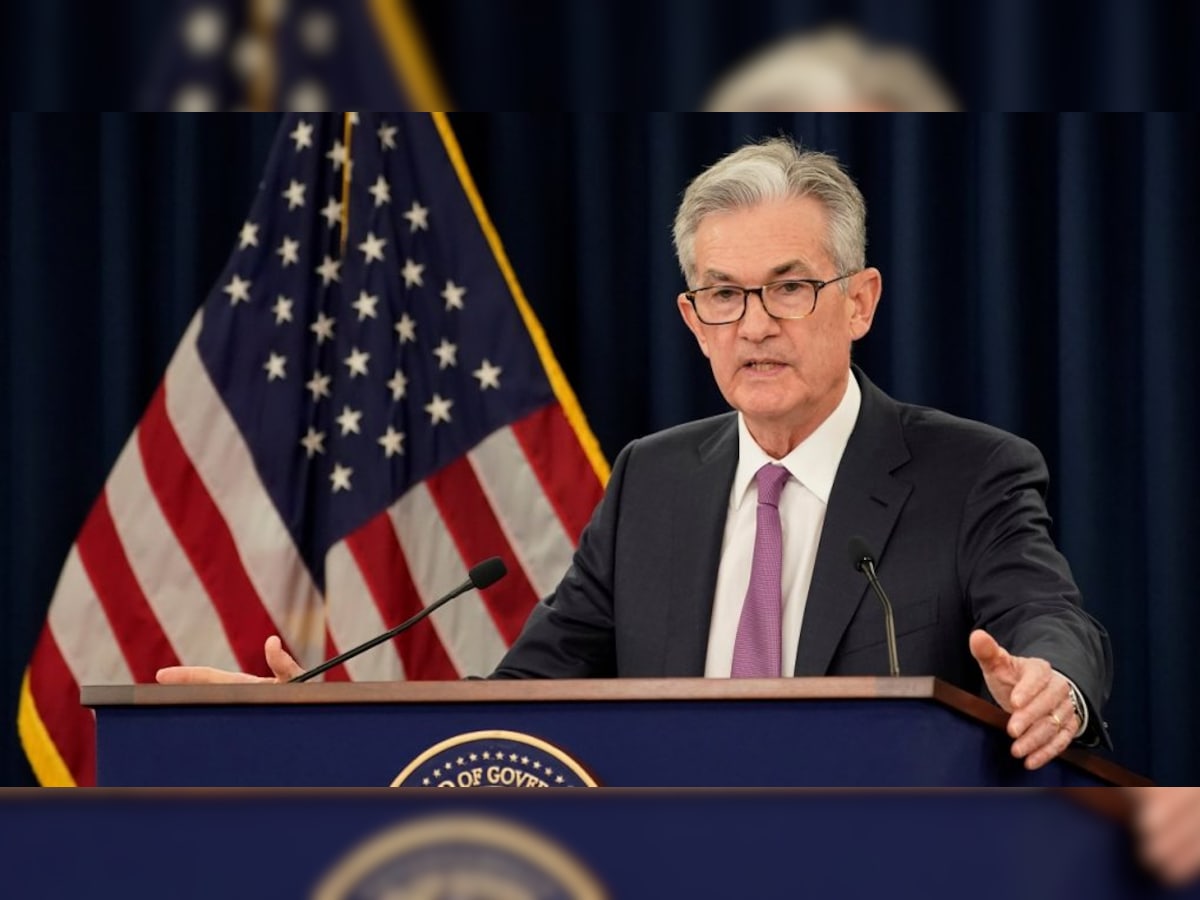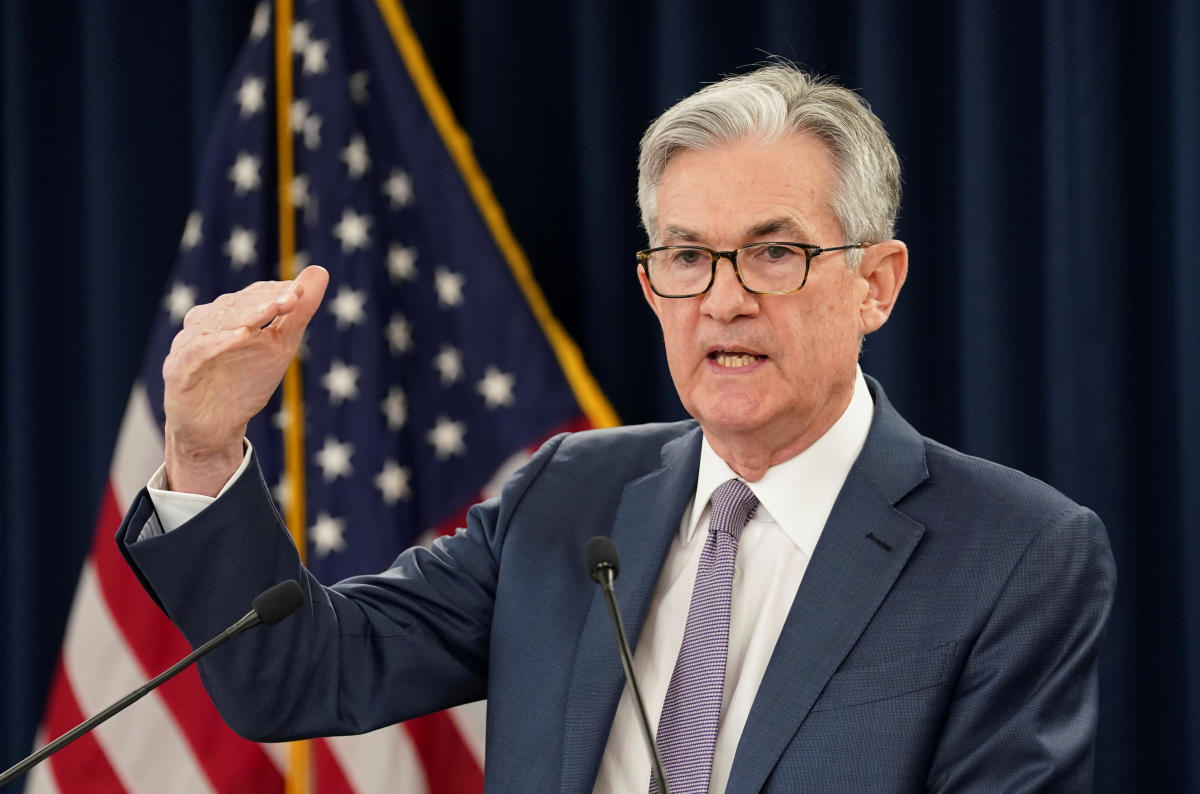Federal Reserve Hikes Interest Rates By 0.25%: Highest Level In 16 Years.
The Fed emphasised in its statement that the US banking sector is "strong and resilient", but recent changes in the banking industry "are anticipated to result in tighter lending conditions for consumers and companies and to impact economic activity, hiring, and inflation."

Federal Reserve Hikes Interest Rates By 0.25%: Highest Level In 16 Years.
The US Federal Reserve raised interest rates by a quarter point on March 22 while refusing to let its guard down in the face of stubbornly high inflation and assuring markets devastated by the banking crisis that it has the ammunition to prevent contagion.
The Federal Reserve raised its fund’s target rate to a range of 4.75 to 5 per cent, which was last reached before the global financial crisis of 2007–2008.
The rate increase, which was more or less in line with expectations, will raise the cost of borrowing money and increase the likelihood of a potential recession, which could have repercussions not only for the world’s largest economy but also for economies all around the world. The rate walk was necessary due to persistently high inflation.

The Fed emphasised in its statement that the US banking sector is “strong and resilient”, but recent changes in the banking industry “are anticipated to result in tighter lending conditions for consumers and companies and to impact economic activity, hiring, and inflation.”
Rates will end 2023 at roughly 5.1 per cent, according to Fed policymakers’ projections, which is unchanged from their median prediction from the previous round of predictions in December. The median prediction for 2024 increased from 4.1 to 4.3 per cent.
The increase and the estimates indicate officials are still intent on reducing inflation down to their target of 2 per cent, showing they view rising prices as a greater threat to the economy than the instability in the banking sector. Additionally, it exudes assurance that the financial system and economy are strong enough to withstand the recent spate of bank failures.
Following the failure of Silicon Valley Bank and at least two other regional banks due to rising bond portfolio losses and substantial depositor withdrawals that weakened their balance sheets and required closure by regulators, the Fed made its move a few days later.
The worldwide banking giant Credit Suisse, which merged with UBS in a deal mediated by the Swiss government, was largely brought down by the banking crisis, which sparked a significant sell-off throughout stock markets.
The Fed emphasised that the larger banking system is strengthened with necessary safeguards in terms of capital adequacy and gave the markets reassurance that it has the ability to address the banking crisis.
Following the Credit Suisse fiasco, international central banks, led by the Fed, announced a dollar swap facility to ensure the system had enough liquidity.
The Reserve Bank of India, whose Monetary Policy Committee is scheduled to convene in April to deliberate the next course of policy action, will be affected by the Fed’s rate hike on its policy rates as well as those of other central banks.
What Influenced the Rate Increase?
With banking strains lessening in recent days, most economists reckoned officials would hike the fed funds rate by a quarter point. Increasing by less than the half point that markets had anticipated prior to the crisis would allude to the financial issues.
Yet, it would continue the Fed’s efforts to control inflation, which has risen sharply thus far this year after dropping in late 2022. Concerns about inflation have been exacerbated by the acceleration of consumer spending, salary rises, and job creation since last year.

What is the Inflation Situation?
Last year, inflation remained high and reached 9.1% annual growth in June, setting new records. The Bureau of Labor Statistics reports that inflation is currently 6% higher than it was in the previous year.
High inflation rates are mostly the result of rising petrol, food, and housing costs. Despite the declining rate of inflation, all costs continue to rise, especially those for housing and grocery.
During periods of high inflation, even though you’re probably not earning more money, everything you buy will cost more since your dollar won’t go as far. As wages aren’t rising as quickly as costs, many people are really finding it difficult to make ends meet.
The Effects of Increasing Interest Rates on the Economy
Lesser rate increases do not indicate that the recession is about to end. According to experts, 2023 will be another difficult year as long as prices stay high and interest rates continue to rise.
Although the aggressive rate hikes in 2022 and early 2023 were intended to bring the CPI (consumer price index) down to 2%, Shannon Grey said they are now beginning to take their toll.
Powell warned that further rate hikes would hurt the economy last year, and recent bank failures have already begun to show some of those repercussions, Grey continues. Grey declared, “Clearly, we’re not out of the woods yet.”
Many experts are still concerned that further increases in borrowing costs could cause the economy to contract too much and plunge us into a recession, which is defined as an economy that is contracting rather than expanding.
The Fed is aware of the risks and unfavourable effects of this restrictive monetary policy. Moreover, a recession now appears more likely, According to Derek Delaney, certified financial planner and owner of PharmD Financial Planning, the probability of a recession is at 70%.
A recession may occur sooner if unemployment increases and employment becomes unstable, but the likelihood and size of a recession will greatly depend on what happens with inflation in the future.
As the founder and certified financial planner of KJH Financial Services, Kimberly Howard, said, “If it is a little one or a more serious one, only time will tell.” It is anticipated that consumer spending will slow if prices keep rising.
How Recent Bank Failures May Affect Rate Hikes in the Future?
According to Bobbi Rebell, a certified financial planner and the author of Launching Financial Grownups, the Federal Reserve is still processing recent bank failures and is carefully considering future rate decisions.
However, Rebell noted that the banking system isn’t currently having a significant impact on the Federal Reserve’s decision to raise rates. The Fed is nevertheless closely monitoring the issue. Powell said, “We’ll keep an eye on the banking system and are ready to use all of our tools to keep it safe if we have to.”
You might be concerned about the safety of your funds in a savings account, certificate of deposit, or other bank accounts in light of recent bank failures. Yes, Rebell responded, provided that it is FDIC insured.
How the Latest Rate Increase Will Affect Your Money?
According to the most recent Fed rate increase, mortgage, credit card, and personal loan interest rates will continue to rise for borrowers. On the other hand, savers can gain from increased returns on their accounts as long as interest rates are high.
However, it’s crucial to remember that the rate of savings is outpacing the rate of inflation, making it impossible to “fight” inflation.
Both experts and consumers are nonetheless anxious about the future of the employment market and the potential for a recession due to high prices and expensive debts. However, there are a few steps you can take to prepare your finances for the next economic downturn:
Tackle New and Outstanding Debt.
Every increase in interest rates makes it more expensive to buy a car or a house because you’ll have to pay more in interest. Your mortgage or student loans may cost more to refinance if rates rise. Moreover, the Fed’s rate increases will result in higher credit card interest rates, increasing your debt from unpaid amounts.
Make sure you comprehend the full amount you will owe, including the payment schedule, applicable fees, and interest rate, before taking out a new loan or mortgage. Have a plan to pay off any outstanding debt to reduce balances as rapidly as you can.
Look at the numbers and make thoughtful decisions, Rebell advised. Also, talk to your family, as very few people live in an economy of one, because. If at all possible, she advised thinking about paying off outstanding debt with a reduced or fixed interest rate right now.
You might also think about a balance transfer card or a debt consolidation loan, provided you have a strategy for paying off the sum before interest starts to accrue. Make sure to verify whether the interest rate on your debt is fixed or variable.
Many personal and home loans have fixed interest rates, so if you just borrowed money, you can have an interest rate that’s high and will last the entire term of the loan. Contrarily, the majority of credit cards have variable interest rates, which means the already extremely high APR (which currently averages over 20%) on any debt will further increase as rates climb.
“It is not guaranteed that your rate will decrease if the Fed slows or stops boosting rates. It may just indicate that it isn’t rising, “Rebell said. Act now; don’t postpone. If you need to refinance debt into a fixed-rate loan, it is preferable to do so right away in case interest rates rise further in the near future.
The Conclusion
The time to get ready is now, even if we don’t know when the economic crisis will end or what to anticipate from a potential recession. Start by looking at your budget to cut unnecessary spending or consider a side hustle to bring in extra income.
In addition to putting away more money, this year is a good time to focus on lowering the interest rates on any obligations you take on or already have.
Even if there is a chance that interest rates won’t change considerably over the next few months, they are still rather high and may prevent you from reaching your financial goals if you end up spending more in interest than you had anticipated.
edited and proofread by nikita sharma





